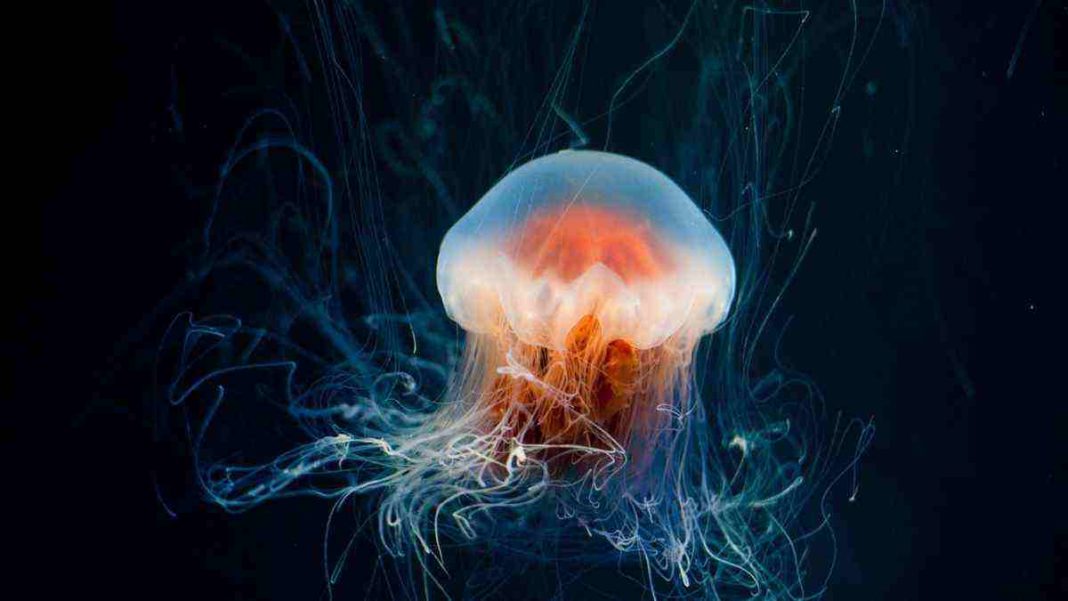DENMARK: Researchers have uncovered an extraordinary cognitive ability in an unlikely source: brainless Caribbean box jellyfish. These delicate, centimeter-sized creatures have astounded scientists by demonstrating the capacity to learn from visual cues, a skill typically reserved for creatures with more complex nervous systems.
Associative learning in jellyfish?
Caribbean box jellyfish, scientifically known as Tripedalia cystophora, are no strangers to navigating treacherous underwater environments. Despite their lack of a central brain, these ethereal organisms have developed an ability akin to “associative learning.”
This form of learning involves recognizing and connecting visual stimuli to specific outcomes, allowing them to adapt and avoid obstacles in their path.
Ivan Pavlov’s famous salivating dogs served as an iconic example of classical conditioning, but Anders Garm, a marine biologist at the University of Copenhagen and the study’s lead author, argues that this type of learning is even more complex. The jellyfish’s ability to “predict a future problem and try to avoid it” defies conventional expectations for animals with primitive nervous systems.
The experiment
To test the jellyfish’s learning capabilities, researchers designed an ingenious experiment. The jellyfish were placed in a water-filled tank with glass walls adorned with stripes of varying darkness, mimicking the visual complexity of mangrove roots. Initially, the jellyfish bumped into the glass walls as they explored their surroundings.
However, astonishingly, within just three to six attempts, they quickly learned to navigate through sections of the tank where the bars were less visible. If the stripes were made more conspicuous, the jellyfish would stay away from the walls but struggle to find food. Removing the stripes altogether resulted in repeated collisions.
A fundamental property of nervous systems
This groundbreaking research challenges the long-held belief that learning and complex cognitive abilities are solely the domain of creatures with larger brains. While Caribbean box jellyfish possess only a fraction of the neurons found in animals like fruit flies, crabs, or mice, they demonstrate a comparable rate of learning.
The study suggests that the capacity to learn through association may be a fundamental property of nervous systems, dating back millions of years to a common ancestor shared by jellyfish and more advanced animals.
Cnidarians, the group that includes jellyfish, sea anemones, and corals, are a “sister group” to the animal kingdom that encompasses humans, raising intriguing questions about the evolution of learning capabilities.
Implications for science and beyond
The discovery of such sophisticated learning abilities in such a simple organism highlights the mysteries that remain to be unraveled in the natural world. Understanding how these jellyfish achieve this feat may have implications for fields ranging from neuroscience to artificial intelligence.
As researchers delve deeper into the secrets of the brainless wonders of the sea, it becomes increasingly clear that intelligence and learning may be far more widespread in the animal kingdom than we ever imagined.
This revelation prompts us to reconsider our understanding of intelligence and cognition and how they have evolved over millions of years.
Also Read: Neuroscience Breakthrough: Researchers Create First Detailed Map of Insect Brain



